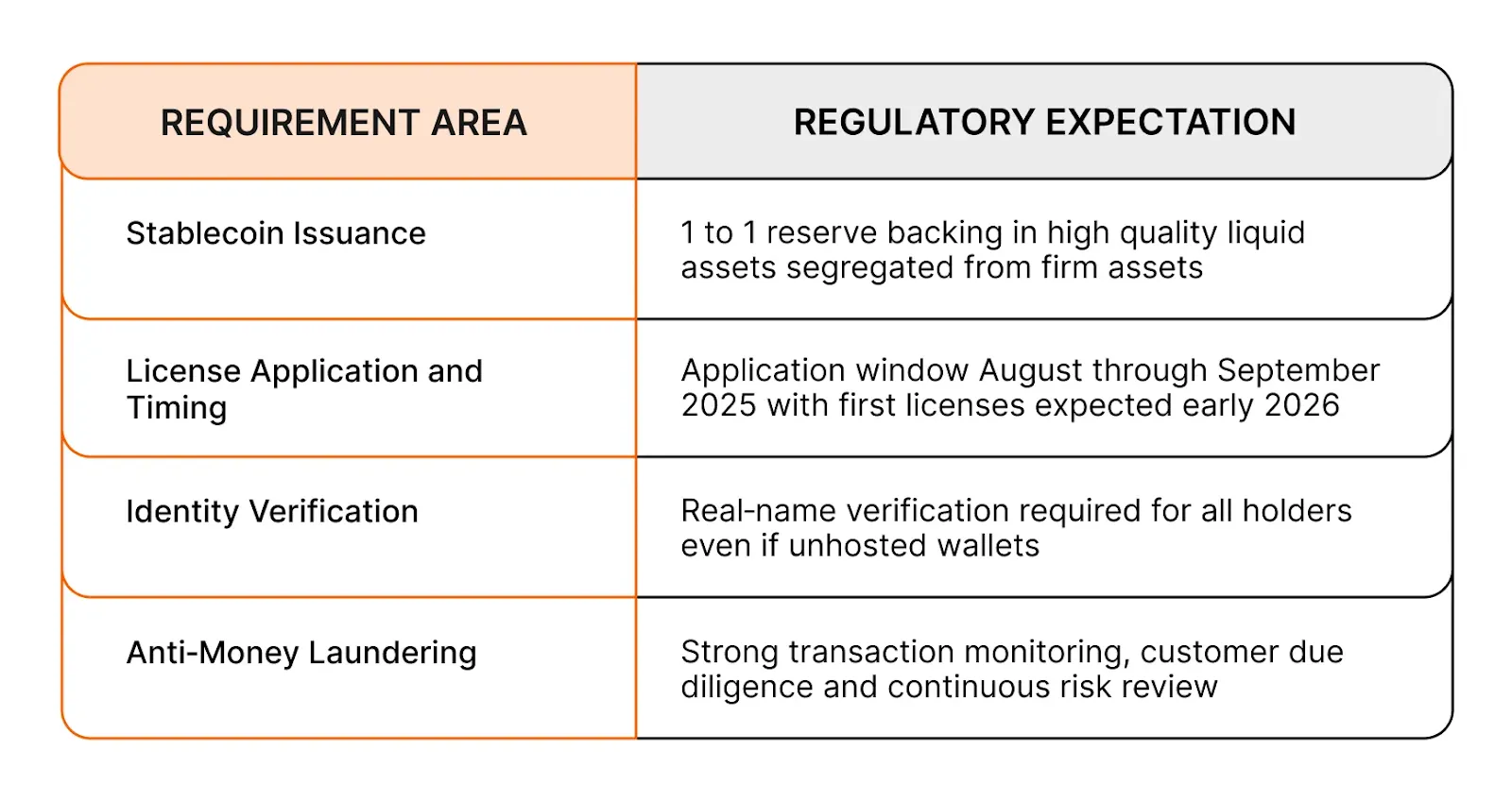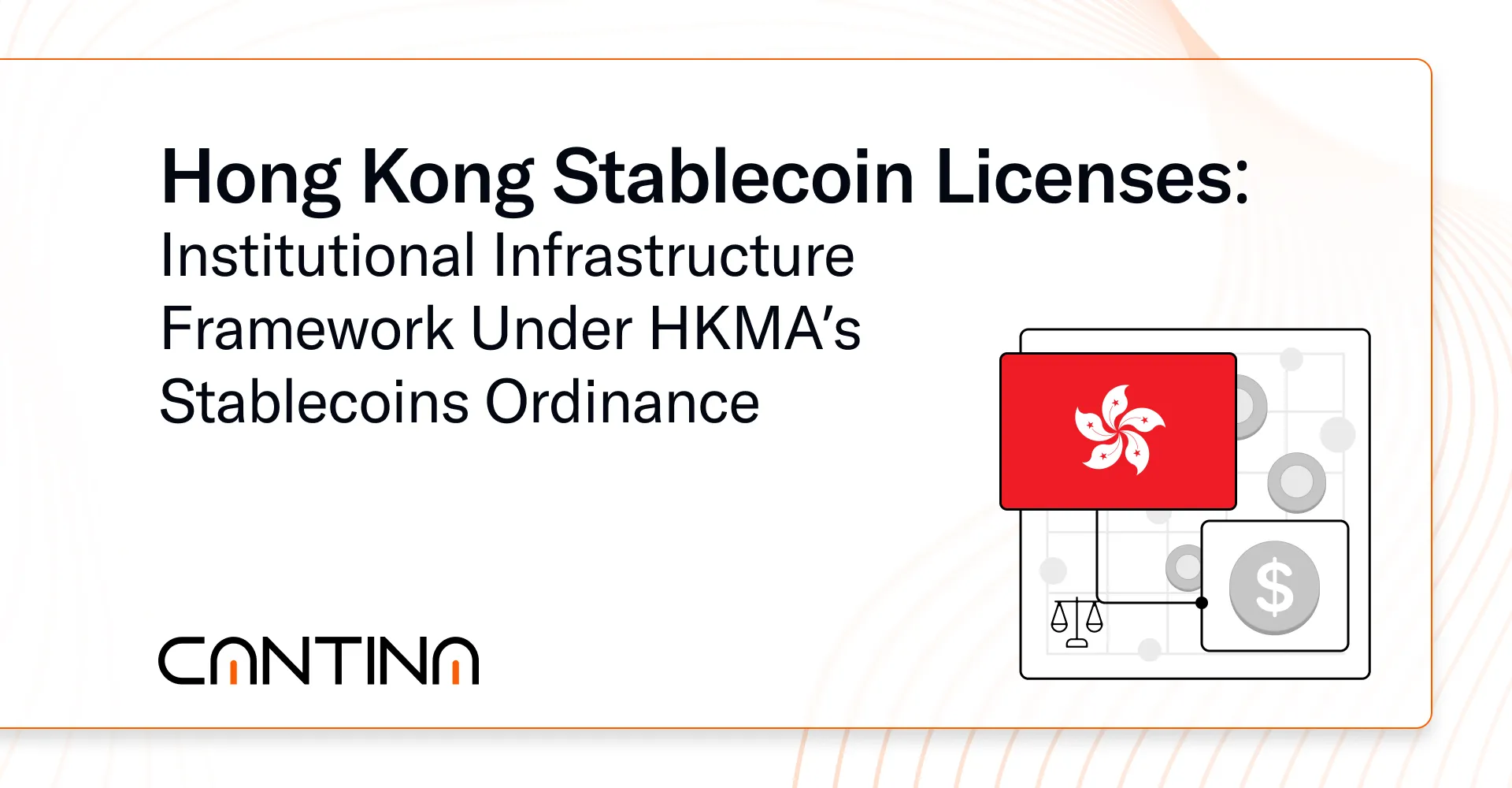Introduction
In August 2025 Hong Kong enacts its Stablecoins Ordinance establishing a mandatory licensing regime for fiat‑referenced stablecoin issuers. This regulatory regime defines institutional preparatory requirements around reserves, redemption, governance, and AML controls. For DeFi organizations seeking credibility in institutional markets, compliance with this model becomes foundational.
Regulatory Requirements Under the Ordinance
The Ordinance introduces operational standards for stablecoin issuance custody redemption and governance transparency:

The licensing regime includes a six‑month transitional period for operators that existed prior to August 1 2025, during which temporary licensure is permitted under conditional compliance.
Market Dynamics and Institutional Signals
The HKMA expects to issue only a select number of licences initially under strict regulatory scrutiny standards. Major regional players such as Ant Group and JD.com are preparing applications signaling early interest . Firms that fail to meet qualifying standards may exit the market before licenses are granted.
Institutional Alignment: What This Rule Requires
Hong Kong’s framework signals a shift toward crypto systems becoming regulated financial infrastructure. Institutions now expect transparent custody systems enforceable minting and redemption logic traceable governance structures and verifiable AML compliance paths. DeFi organizations that fail to demonstrate these capabilities risk exclusion from regulated engagement and institutional allocation.
Cantina’s Role in Strengthening Institutional‑Grade Infrastructure
Cantina supports DeFi organizations that seek regulated readiness by embedding reviewability and operational trust into their core systems:
- Source‑level security reviews of token contracts mint logic upgrade mechanisms and access control flows
- Technical validation of custody systems redemption mechanics oracle reliability and corporate governance pathways
- Scenario based simulations focused on redemption failover queue resilience control path misuse and fault isolation
- Documentation frameworks designed for compliance proofs investor due diligence and regulatory engagement
These efforts prepare protocols for institutional onboarding and support investor confidence aligned with licensing criteria.
Web3SOC Alignment and Organizational Maturity
Web3SOC defines what institutional DeFi readiness looks like across operational financial security and regulatory domains. Organizations can measure their infrastructure against a transparent scoring framework identify gaps and build a roadmap toward institutional trust. Combining Cantina’s technical assessments with Web3SOC scoring ensures readiness not only for licensing but also for partnership with institutional participants.
Strategic Positioning in a Regulated Stablecoin Landscape
The licensing framework introduced by the Hong Kong Monetary Authority signals a directional shift in how jurisdictions will structure oversight of stablecoin infrastructure. This is not an isolated development. It reflects the broader regulatory convergence around reserves, redemption, and operational transparency.
Organizations navigating this transition are not simply reacting to compliance. They are positioning themselves as infrastructure providers for the next phase of financial integration. Institutional market access will depend on visible maturity across custody, governance, and real-time auditability.
Leadership in this context means designing systems that meet not just today’s minimums but tomorrow’s thresholds. It means anticipating requirements, building verifiable safeguards, and demonstrating operational clarity before it is mandatory. The organizations that do this now will define the early cohort of licensed, institutionally integrated protocols in 2026 and beyond.
Looking Ahead: Next Steps for Stakeholders
Organizations preparing for license applications should prioritize comprehensive reserve logic audits, verify redemption mechanics under stress, document governance structures, implement AML system design, and prepare complete compliance documentation. Institutions evaluating protocols will focus on alignment with licensing frameworks, transparency in custody, and integrity of the source code. Early organizational readiness will be critical for inclusion among the first licensees expected in early 2026.
Have questions about compliance, stablecoin infrastructure, or how to prepare for regulatory-grade security? Cantina helps organizations align their systems with institutional expectations through structured reviews and readiness assessments. Contact us to start the process.




